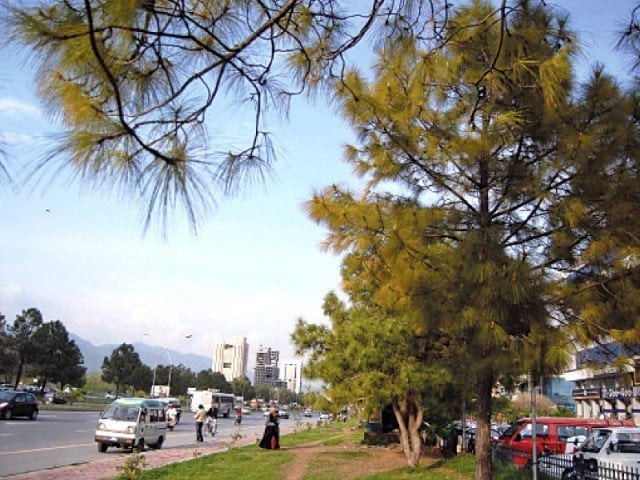Islamabad:
When Pre-Monsoon clouds gather over Margalla Hills, another form of storm is unfolded in the capital-a driven by motor cases, excavators and urgent environmental action. Capital Development Authority (CDA) is struggling to remove thousands of paper merry trees from Islamabad prior to their next flower to prevent a repeat of spring health crises.
Islamabad, long celebrated for his green surroundings, is now considering its urban landscape. The rapidly growing broussonetia papyrifera or papers were strongly planted in the 1960s to shape the city’s lush image. However, the tree has since become one of the leading causes of serious seasonal allergies.
“We don’t just cut trees – we save lives,” said CDA environmental director Irfan Niazi. “This is one of the most important environmental health initiatives in the city’s history.”
Each spring, male mulberry trees release huge amounts of airborne pollen that trigger asthma attacks and allergic reactions in thousands of residents. According to the Pakistan Institute of Medical Sciences (PIMS), over 12,000 allergy patients are treated annually due to mulberry pollen, with emergency room reporting a 30% increase in asthma cases.
“If we do not remove a critical number of these trees before the next thriving cycle, we will face another health disaster next year,” said Akhtar Rasool of CDA’s Horticulture Department.
CDA’s Tree Removal Drive, launched last year, has entered an accelerated phase. Targeted operations are underway in sectors such as G-6, G-7, F-6 and F-8, where the density of mulberry trees is highest. Each tree is GPS marked, rated for size and location, and only male trees are removed. Removal activities are documented for transparency.
Work crews, dressed in safety equipment, drifting daily to cut, chip and transport the trees. The campaign is supported by traffic and security teams to maintain public policy and protect infrastructure.
Critically, for each removed tree, CDA is planted at least 10 native species with low albergen, such as Phulai (Acacia Modesta), Amaltas (Cassia Fistula), Sukh chain (Dalbergia Sissoo) and Wild Olive (Olea Ferruginea). These species support biodiversity, provide shade and do not release harmful airborne pollen.
“These trees are either insect pollinated or produce heavy pollen, making them safer for public health,” said CDA botanist Rana Kashif. He added that CDA Plant Schools are growing over 100,000 plants this year, with mass plane planned in the Monsun season.
At Polyclinic Hospital, where allergy cases have risen for years, greeted medical officer Dr. Swaira Sig. “We have seen patients develop chronic asthma from repeated exposure. With these removal, we hope for a measurable fall in case by 2026.”
Hospitals such as Pims and Polyclinic have established dedicated allergy clinics, expanded emergency capacity of peak -loaded pollen months and coordinating with CDA to monitor health impacts.



